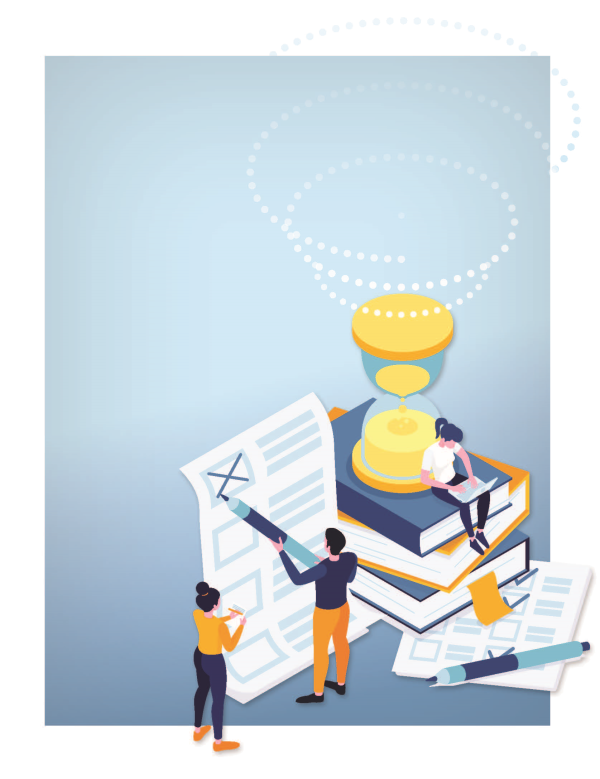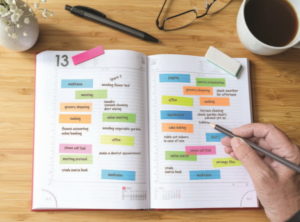The Transition to College Starts Today
Beth McGaw
Attention Magazine October 2022
Download PDF
 If you’re a high school senior who is planning to go away to college, consider this a training year for the independence soon to come. Taking stock of the accommodations you’re receiving in high school and ensuring you are working on your independent living skills will help you be successful in your transition.
If you’re a high school senior who is planning to go away to college, consider this a training year for the independence soon to come. Taking stock of the accommodations you’re receiving in high school and ensuring you are working on your independent living skills will help you be successful in your transition.
The first semester of your senior year likely includes tasks related to making your final choices about where to apply. Researching colleges is one way to practice follow-through and project management.
For students with ADHD, learning disabilities, or on the spectrum, researching the support offered at each college is just as important as what majors are offered. When researching colleges either online or by touring the school, the disability support services (DSS) office is the first step to gaining more information about the support offered at the college. Note that names for this office will vary from college to college; to keep it simple, this article will use DSS.
The DSS staff are the gatekeepers for any accommodations you will receive during your college career. For those with a 504 plan, colleges will use that plan to determine what accommodations you might need. So, use your 504 plan as a template for talking with support staff about how and where services will be available.
College: accommodations, not modifications
After acceptance to a college of your choice, DSS will require the documentation to approve your accommodations. You should know that the supports you receive are accommodations, not modifications. While in high school, you may have been able to modify a test with a version that had fewer questions, but in college, that would not be allowed. You can request extended time and take the test in a quiet area, with both considered an accommodation. An important key difference between a modification and accommodation is that the curriculum and course requirements cannot be altered.
Typical accommodations in college may include:
- note taker
- extra time on exams
- private testing room for exams
- assistive technology
- use of computer for taking notes
- use of the computer to write essay questions
- early registration
- foreign language substitution
Here are a few other recommendations to prepare for college success.
 Plan for dealing with a lot of text! In the first two years, while taking core college classes, much of your college work will be reading and writing. Don’t let that scare you away. Taking advantage of the support offered on campus will be crucial to your success. Consider using digital textbooks, audiobooks, or the on-campus writing center. The writing center can be an essential strategy to help start and organize papers. Remember to start early and do not wait until the last minute.
Plan for dealing with a lot of text! In the first two years, while taking core college classes, much of your college work will be reading and writing. Don’t let that scare you away. Taking advantage of the support offered on campus will be crucial to your success. Consider using digital textbooks, audiobooks, or the on-campus writing center. The writing center can be an essential strategy to help start and organize papers. Remember to start early and do not wait until the last minute.
Most computers offer Accessibility capability found in System Preferences. Here you can set the audio rate of speed, type of voice, and sound level. Online textbooks offer speech options as well as highlighting and outlining for notetaking. According to LD Online, “E-text is currently considered a “best practice” to provide access to instructional materials for students with disabilities, including learning disabilities. It allows words to be made larger, to change colors, to talk, and to be made into other formats.”
Understand how to navigate a Learning Management System (LMS). Does your high school use an LMS such as Canvas? If so, you may have learned where to find your syllabus, schedule, grades, homework, and extra reading supplements. If your high school is not using digital management tools, this may be a stumbling block for you during your first semester in college. Most colleges provide announcements and communication with professors through LMS. One way to practice before you get to college is to take a dual credit class through the community college that can provide that experience while you earn college credit.
Start keeping track of your schedule on your phone or another planning device. One paper planner that I like is the Planner Pad Organizer. It takes the more significant tasks and breaks them down into the daily tasks and then the hourly tasks for that day. Your phone is another crucial tool that is usually with you all the time. Start to use it now to add events to your phone calendar. You can schedule reminders for tests and when homework is due. If you get in the habit now, you will be less likely to miss deadlines and get better grades.
Learn to check your emails daily. You may use text messaging more than email right now. But professors and the school will be contacting you more via email than text messages. You must check your email daily. Add email to your phone and your computer if you haven’t already. To help keep the clutter down in your email, create folders for each class and activity, so they can be stored all in one place.
A digital filing system will help organize homework and projects. Creating files within your Documents or Desktop will help save time searching for the paper you know you started last night. Especially if you don’t remember the name of the file. Using a system that saves the file under the name of the class might be a lifesaver, such as Documents < Psychology 101 < Psychology_101_Paper1. Using a digital cloud document system like Google docs can also be helpful by saving the file in a folder on Google Drive or a similar platform. That way, you can find it anywhere, even from your phone.
Start going to appointments on your own. If you are not already doing so, you might consider going to dentist and haircut appointments alone if you drive. Set reminders on your phone to ensure you arrive on time, allowing drive time.
Set the alarm and get yourself out of bed each morning. In high school, your parents may be your alarm clock. In your senior year, if not sooner, practice setting your alarm clock early enough to practice good hygiene, eat breakfast, and travel to school. Research shows that you can create a habit within thirty days. An aside from this is to make your bed. In the 2014 commencement speech at the University of Texas, Admiral William McCraven compared making your bed to changing your life. “If you make your bed every morning, you will have accomplished the day’s first task. It will give you a small sense of pride and encourage you to do another task and another and another.”
 Learn how to do your laundry. Your parents will appreciate this one, and so will your roommates. Don’t bring a lot of clothes with you to college. If you bring a week’s worth and a couple of dress-up outfits, it will help keep the laundry basket from overflowing and give you a reason to do your laundry.
Learn how to do your laundry. Your parents will appreciate this one, and so will your roommates. Don’t bring a lot of clothes with you to college. If you bring a week’s worth and a couple of dress-up outfits, it will help keep the laundry basket from overflowing and give you a reason to do your laundry.
Work on decreasing procrastination. Creating a plan for studying for tests and working on projects can help to reduce procrastination. That’s where the Planner will come in handy. For example, if you have a test on Chapters 1-3 on Friday, try reviewing a chapter a day and leave the day before the test for an overall review. For example, add Chapter 1 on the calendar for Monday, Chapter 2 on Tuesday, and Chapter 3 on Wednesday. While reviewing each chapter, create a Quizlet and take a sample test on Thursday.
Practice problem solving and self-advocacy. At the beginning of your senior year, schedule a meeting with your teachers to let them know what you need to be successful in their classroom. If it is difficult for you to talk to them in person, write a letter to the teachers explaining your needs. In college, the responsibility is on the student to tell the professor what accommodation is needed. Some colleges require you to submit your accommodations online, while others ask the student to hand a form to the professor directly. You can practice this skill in high school by advocating for yourself with your teachers, your employer, and your parents.
YES, COLLEGE IS A TIME TO PREPARE FOR A CAREER, but it is also a time to learn about yourself, how to be independent, and how to interact with others. Even if you aren’t leaving home to go to college, the suggestions in this article apply. Know that you will have much more unscheduled time in college and need to make good decisions about how you use your time. Starting now while you are home can create good habits for later and help you be ready for the big step to college.
 Beth McGaw is an independent educational consultant with LaunchPad Consulting Group, specializing in college and career planning for students diagnosed with ADHD, learning disabilities, and autism spectrum disorder. She is the past president of the Learning Disabilities Association of America and serves on the board of StandUpLD, LDATX, and the Learning Disabilities Foundation of America. Her biggest personal accomplishment and inspiration is the graduation from college of her youngest son, who is succeeding in life with LD and ADHD.
Beth McGaw is an independent educational consultant with LaunchPad Consulting Group, specializing in college and career planning for students diagnosed with ADHD, learning disabilities, and autism spectrum disorder. She is the past president of the Learning Disabilities Association of America and serves on the board of StandUpLD, LDATX, and the Learning Disabilities Foundation of America. Her biggest personal accomplishment and inspiration is the graduation from college of her youngest son, who is succeeding in life with LD and ADHD.
FOR MORE INFO
LD Online, An Educator’s Guide to Making Textbooks Accessible and Usable for Students with Learning Disabilities | https://www.ldonline.org/ld-topics/teaching-instruction/educators-guide-making-textbooks-accessible-and-usable-students
Planner Pad Organizer | https://plannerpads.com/
Admiral William McCraven’s “Always Make Your Bed” speech | https://www.businessinsider.com/navy-admiral-william-mcraven-commencement-speech-always-make-your-bed-2016-2
Other Articles in this Edition
LW4K: Turning Game-Based Learning into Executive Function and Social-Emotional Learning Skills
Is Doing Household Chores Related to Executive Functioning?
How to Recover From a Friendship Breakup
“Everyone’s So Tense All the Time”
Building Better Homework Habits
The Transition to College Starts Today
Think You Can Spot ADHD in Your Classroom?
How to Build and Maintain New Habits
How Would a Professional Approach Treating an Adult with ADHD?
